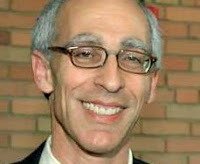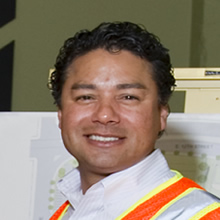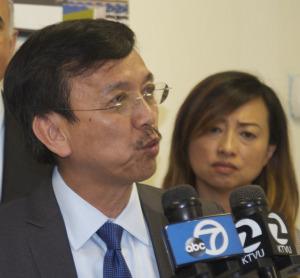City Council Settles Garbage Wars
Sep 27, 2014
Posted in Business, Community, Economic Development, Education/Schools/Youth, Environment, Gentrification, Oakland Talks Trash
By Ken Epstein
The Oakland City Council declared a victory and a truce this week in the month-long garbage conflict with Texas-based Waste Management, the nation’s largest trash hauler, which was determined to force the city back into a billion-dollar contact that the company had lost to a small local firm.
As a result of the council decision, which divides the contract between Waste Management (WM) and the local company, California Waste Solution (CWS), WM has agreed to drop its lawsuits against the city and to halt its divisive referendum campaign to force a special election to overturn the council’s decision.
WM has committed to implementing most of the terms of the city’s agreement with CWS and to reimburse the city and CWS for their legal fees and other damages.
The council is celebrating the settlement, which many say is good for Oakland residents, a much better deal than the city would have won if it had not stood up to WM.
“When you get all that you want at the price that you want, it’s time to declare a victory,” said Councilmember Lynette McElhaney, who has been a leader on this issue on the council, along with Rebecca Kaplan and Dan Kalb.
“Because this council stood firm, we were able to get even Waste Management, based in Houston, to hear us loud and clear. And they sent their team back to the drawing board to figure out how they could better serve the residents of this community – because CWS was willing to stay in the fight,” said McElhaney at Monday night’s council meeting.

Agreeing, Mayor Jean Quan said, “I particularly want to thank Waste Management and California Waste Solutions. Over the last few weeks, both moved a long way. This is the best win for the citizens of Oakland – they get a better rate, (and) we’ll be one of the greenest cities of the country in terms of our garbage disposal.”
Others, however, remain angry that the city has come to an agreement with a company that tried to beat Oakland and CWS in submission with bullying and threatening tactics.

WM’s actions put the city and CWS in a position where the company might not be able to obtain financing to purchase equipment and be up and running by July 1, thereby jeopardizing the standing of the company and threatening the city with no garbage pickup next year.
Ending the dispute, Mayor Quan announced on Thursday she had negotiated a memorandum of understanding between WM and CWS and that CWS had agreed to give up most of the franchise it had won, settling for taking over 100 percent of the city’s recycling.
Whether this agreement adds up to a win for Oakland depends an examination of the choices the City Council faced at the end of May.
At that time, when the council was wrestling with the new trash agreement, city staff was
championing what was called “Option 1,” which would have shut out California Waste Solutions (CWS) – giving 100 percent of the contract to Waste Management (WM) – and raised rates by 50 percent.
“It is recommended that the City Council authorize the City Administrator to accept the Option 1,” according to the May 16 staff report.
Under the current agreement that expires next July, CWS has been handling half of the city’s recycling.

The proposal backed by city staff would have allowed WM to lock out its employees without penalty. The proposal did not include councilmembers’ key concerns: promoting Civicorps, which handles green waste and creates jobs for Oakland youth, restarting a local call center that was shut down and outsourced by WM and partnering with East Bay Municipal Utility District to utilize a “digester” to turn green garbage into electrical energy, which will help the city reach its zero waste goals.
But these were all parts of an agreement the council felt were fundamental and necessary for Oakland residents – along with lower rate increases.
As a result, the council in July voted unanimously to turn to what was called “Option 3,” handing the whole contract to CWS, the smaller, local company that was willing to meet the city’s needs at lower rates.
Under the two ordinances passed at Monday’s council meeting, the council was able to preserve most of what it had voted for in the agreement with CWS. These victories came as a result of the council’s insistence and were not specified in what the mayor had negotiated last week, said Councilmember Kaplan.
“This has not been a done deal,” said Kaplan, speaking at the meeting. “As recently as (a few hours before the meeting), the key provisions that the community fought for were not in the deal before us. (Now) I am pleased to see the language on Civicorps … and EBMUD, the call center and the protections for the workers (are assured).”

Under Quan’s negotiated agreement, rates for residential customers will remain the same as what was in the CWS agreement, but commercial and multi-family rates will increase, though less than WM had originally asked for.

Councilmember Kalb said he was pleased with the final agreement, though he was still concerned about how WM treated the city.
“The council’s steadfastness has led to a lower increase than we would otherwise have had,” Kalb said.
“There’s always the gut desire not to give into the pressure
tactics that have existed over the past few weeks – I share that gut feeling,” he added.”(But) if we were not to make these changes, I fear that the referendum would succeed, (and there would be) costly delays and unanswered questions about what would happen next July and beyond when it comes time to pick up the garbage.”
CWS owner David Duong said, “We can do the job. But then came the two lawsuits and the referendum. This is a lot of costs for us and the city.”

David Tucker of Waste Management of Alameda County promised a good working relationship with the city in the future and apologized for the company’s tactics. “This has been a difficult process for all involved,” he said. “We understand we have stressed relationships with the City Council and the city, and we are fully committed to repair and improve that relationship.”
“When we were told that even a single signature gatherer got the message wrong, we took immediate action,” said Tucker.
Responding to Tucker was another speaker, Ken Houston, a community leader and candidate for mayor, who organized the CWS campaign to pass out literature to counter WM’s petition gatherers.
“I have police reports here,” said Houston, saying that someone paid by WM spit on one young woman and another pulled a gun on a woman and her daughter.
“I do not accept your apology. I’ve seen what happened to people out there. The only way I can accept your apology is if you do something for the people who have been spit on, the people that have gotten threatened.”
Councilmember Desley Brooks condemned WM’s tactics as a failure of honesty and a lack of concern for Oakland residents.
“You took a small local company, and you treated them like trash,” she said. “They were disposable to you – to get your ends. What can you say to the people of Oakland to make us believe that we can trust in you for the next 20 years, that you are not going to bully us?”

The purpose of WM’’s referendum and lawsuits “was to mess up CWS’ ability to get financing,” she said. “We all know how the game is played.”
Though the negotiated a settlement was announced Thursday, three days later, Brooks said, WM people were stilling gathering signatures in front of a grocery store. “So, where’s the good faith?” she asked.
“I will not be voting for this,” concluded Brooks, who abstained on the council vote, which passed 6-0.
Mayor Quan was silent on WM’s tactics.